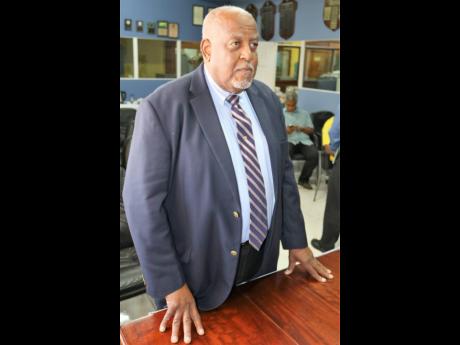JACRA reluctant to offer more fee concessions
Recent calls by the Jamaica Manufacturing and Exporters Association, JMEA, for more targeted concessions on raw materials that are processed for re-export sent Jamaica Agricultural Commodities Regulatory Authority, JACRA, back to the drawing board to review the implications.
And its finding, the agency said on Thursday, that it could end up hurting its ability to do its work – which is financed from the fees it would be giving up – and further, it could end up harming the local coffee sector.
Some private-sector operators, through the JMEA, have been asking the commodities regulator to cut by 50 per cent its fee on imported raw materials that are processed for re-export to alleviate some of the cost of doing business during the COVID-19.
Coffee operator Salada Foods Jamaica, in particular, has been unrelenting in its lobby for JACRA to alleviate charges imposed on that sector.
“If implemented, the reduction of the cess on coffee imports would result in JACRA forgoing a further $73 million in addition to the $114 million of reduced local fees and export charges granted to the coffee producers as of April 1, 2020,” said Chairman of JACRA Dennis Boothe.
The request, according to JACRA, has also not gone over well with other coffee operators, who believe that a 50 per cent reduction of the cess on coffee imports would depress local coffee prices, damage the internationally acclaimed Jamaican coffee brand, drive thousands of coffee farmers out of business, and literally “snuff the little life left in the local coffee industry”.
Discussions heightened between JACRA and JMEA last week following a report by the Financial Gleaner regarding the private sector’s disappointment in the Ministry of Industry, Commerce, Agriculture & Fisheries, MICAF’s, decision to only institute a 50 per cent reduction in export-related fees and charges.
The reduction took effect on April 1 and was deemed part of the Government’s stimulus package to encourage Jamaican companies to continue seeking export opportunities even as the country grapples with the COVID-19 crisis.
While JMEA President Richard Pandohie noted that the reduction in export fees would have a meaningful impact on agricultural commodities, including coffee, cocoa, spice, and coconut licensing fees, it failed to address one of the biggest issues the manufacturers, particularly Salada, have voiced over the years: import fees on raw materials that are processed for re-export.
Pandohie argues that the cess results in far higher costs for raw material inputs to local manufacturers and, therefore, affects their competitiveness in export markets.
JACRA fees fall heaviest on the coffee sector, and the charges that were implemented in 2018 have been taking bites out of manufacturers’ profits. Currently, a cess of US$1.41 per kilogramme is payable by all importers of green beans while imports of instant coffee, including the bulk product, attract a cess of US$2.40 per kilogramme of the green coffee bean equivalent.
The quota rule set by MICAF stipulates that coffee blends must contain at least 20 per cent local coffee in the formulations, but according to JACRA, Salada was granted temporary concessions – from January 2018 to the end of December 2019 – for the use of only 10 per cent local coffee beans in the production of instant coffee as the company complained that because of the shortages of Jamaican beans, local coffee was both difficult and expensive to procure.
The facility was subject to a review at the end of the period.
JACRA says its record of Salada’s coffee business for the three years up to 2019 indicates that the local content of the company’s instant-coffee production has been low. For instance, in 2019, JACRA said that Salada imported s 332,900kg of green coffee beans coffee while exporting the green bean equivalent of 177,300kg, for which the local content was only 17,700kg.
However, Salada has said consistently that it has faced challenges meeting the local quota due to persistent shortages of Jamaican coffee.
On Friday, Salada General Manager Dianna Blake-Bennett said the company was aware of the JACRA statements and needed more time to craft a proper response to them.

